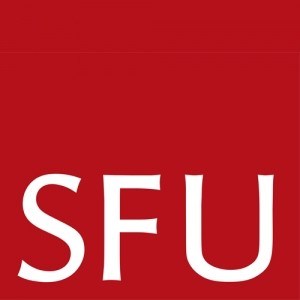Photos of university / #simonfraseru
The Bachelor of Arts in Geographic Information Science (GISc) at Simon Fraser University is a comprehensive undergraduate program designed to equip students with the essential skills and knowledge to analyze, interpret, and utilize spatial data through cutting-edge geographic information systems technology. This interdisciplinary degree integrates concepts from geography, computer science, environmental science, and data analysis, preparing graduates for diverse careers in urban planning, environmental management, resource development, transportation, and beyond. The program emphasizes both theoretical foundations and practical application, ensuring students gain proficiency in GIS software, spatial analysis techniques, cartography, remote sensing, and geospatial data management. Throughout their studies, students will learn to address real-world problems by applying spatial data analysis to issues such as climate change, land use planning, disaster management, and sustainable development. The curriculum combines classroom instruction, laboratory exercises, fieldwork, and collaborative projects, fostering critical thinking and problem-solving abilities. Students will have opportunities to undertake internships and participate in research initiatives, gaining valuable industry experience. The program is designed to adapt to the evolving technology landscape, ensuring graduates are well-prepared for the rapidly growing geospatial sector. By completing the Bachelor of Arts in GISc at Simon Fraser University, students will develop a strong foundation in geographic information science and be positioned for successful careers as geospatial analysts, GIS specialists, environmental consultants, urban planners, and other roles that require expertise in spatial data management and analysis. The program also provides pathways for further education and professional development in related fields.
The Bachelor of Arts in Geographic Information Science at Simon Fraser University offers students a comprehensive understanding of spatial data, mapping technologies, and the applications of geographic information systems (GIS) in solving real-world problems. This interdisciplinary program integrates elements of geography, computer science, environmental science, and urban planning to prepare graduates for diverse careers in industries such as environmental management, urban planning, transportation, and resource management. Throughout the program, students develop strong technical skills in GIS software, spatial analysis, remote sensing, and data visualization, enabling them to collect, analyze, and interpret geographic data effectively. Courses emphasize both theoretical foundations and practical applications, with hands-on projects that simulate professional scenarios. Students have opportunities to work with cutting-edge GIS tools, participate in fieldwork, and collaborate on research projects that address issues like climate change, conservation, and sustainable development. The program also provides a solid background in the social and ethical considerations of spatial data usage, ensuring graduates are prepared to handle privacy, data security, and ethical dilemmas in their careers. Interdisciplinary collaboration is encouraged, as students often work alongside peers from environmental sciences, urban studies, and computer science, fostering a well-rounded skill set. Upon graduation, students are equipped to pursue roles in government agencies, private consulting firms, non-profit organizations, and research institutions, where their expertise can contribute to smarter, data-driven decision-making in spatial planning and resource management. The program’s flexible curriculum allows students to tailor their educational path to align with their career goals, supported by dedicated faculty who are active researchers and professionals in the field of geographic information science.
Program Requirements for Bachelor of Arts in Geographic Information Science at Simon Fraser University:
The Bachelor of Arts in Geographic Information Science (GISc) program at Simon Fraser University is designed to provide students with a comprehensive understanding of spatial data analysis, mapping technologies, and geographic information systems. To graduate with this degree, students must complete a minimum of 120 units of coursework, including core courses, electives, and a capstone project.
Freshman students are advised to start with introductory courses such as GEOG 123 (Introduction to Geographic Information Science) and GEOG 110 (Introduction to Physical Geography). These foundational classes develop the basic skills necessary for advanced coursework. Transfer students or those with prior knowledge may have different entry requirements, but they generally need to demonstrate competency in core areas.
In the first two years, students are expected to complete foundational courses in cartography, spatial analysis, remote sensing, and computer programming. These courses include GEOG 253 (Intermediate Geographic Information Systems), GEOG 254 (Introduction to Remote Sensing), and GEOG 222 (Introduction to Cartography). Additionally, students are encouraged to acquire skills in GIS software such as ArcGIS or QGIS through practical labs and projects.
During the third and fourth years, students take more specialized courses such as GEOG 350 (Advanced GIS), GEOG 370 (Spatial Data Management), and GEOG 390 (Selected Topics in GISc). They are also required to undertake a capstone project or thesis in the final year, which involves applying GIS principles to real-world problems, often in collaboration with external agencies or community partners.
Elective courses within the program allow students to tailor their education toward areas like environmental management, urban planning, or computer science. To graduate, students must maintain a minimum GPA as specified by the university’s academic policies and meet residency requirements, including completing a minimum number of upper-division courses at Simon Fraser University.
Students are also encouraged to participate in internships or co-op placements to gain practical industry experience. All degree candidates must fulfill the university's general education requirements, including courses in humanities and social sciences, to ensure a well-rounded education.
Language proficiency requirements may also apply for international students. Faculty advising is available to help students select appropriate courses, plan their academic trajectory, and explore research opportunities. Upon graduation, students are equipped with the technical, analytical, and management skills essential for careers in GISc, environmental consultancy, urban planning, or further graduate studies.
The Geographic Information Science program at Simon Fraser University offers a comprehensive financial aid and scholarship package to support students throughout their studies. Funding options include entrance scholarships for incoming students based on academic achievement, which can range from several thousand to full-tuition awards. Additionally, students are encouraged to explore provincial and federal scholarship opportunities, such as the Canada Student Grants and provincial bursaries, which can provide supplementary financial assistance. The university's financial aid office provides detailed guidance on application procedures and deadlines.
Work-study programs are also available, allowing students to engage in on-campus employment related to their field of study, thus gaining practical experience while earning income to offset educational expenses. Many students benefit from part-time job opportunities in research projects or administrative roles within SFU departments. Furthermore, the university has designated loan programs for eligible students, including federal student loans and provincial student aid initiatives, designed to cover tuition fees and living costs.
International students enrolled in the Geographic Information Science program have access to specific scholarships dedicated to supporting international education endeavors, as well as external funding sources. It is recommended that international students thoroughly research scholarship options through government programs and private foundations.
In addition to scholarships and loans, cost-saving measures such as meal plans, housing grants, and financial planning workshops are available to help students manage their budgets. The university’s financial planning services provide personalized advice to assist students in creating effective budgets and exploring all possible funding avenues. Overall, SFU is committed to making Geographic Information Science studies accessible by offering diverse financial support options, enabling students to focus on their academic and research pursuits without undue financial stress.
The Bachelor of Science in Geographic Information Science at Simon Fraser University is a comprehensive undergraduate program designed to equip students with the fundamental skills and knowledge necessary to analyze, interpret, and manage spatial data. This program focuses on the development of technical expertise in GIS software, spatial analysis, remote sensing, and cartographic principles, alongside a solid grounding in environmental, social, and technological contexts. Students engage in hands-on projects that involve real-world applications of geographic information systems, preparing them for careers in urban and regional planning, environmental management, transportation, and numerous other fields that require spatial data analysis. The curriculum includes courses in computer science, geography, and statistics, fostering interdisciplinary approaches to geographic problems. Additionally, students have access to state-of-the-art GIS labs and resources, providing practical experience with industry-standard tools. The program emphasizes critical thinking, problem-solving, and effective communication, enabling graduates to contribute to sustainable development and informed decision-making processes. Strong ties with industry partners and government agencies facilitate internships and cooperative education opportunities, helping students gain valuable professional experience. The program also encourages research and innovation, offering opportunities for students to participate in faculty-led projects that address current geographic challenges. Overall, the Bachelor of Science in Geographic Information Science at Simon Fraser University prepares students for successful careers in GIS-related fields or for further graduate study in geography, urban planning, or environmental sciences.





